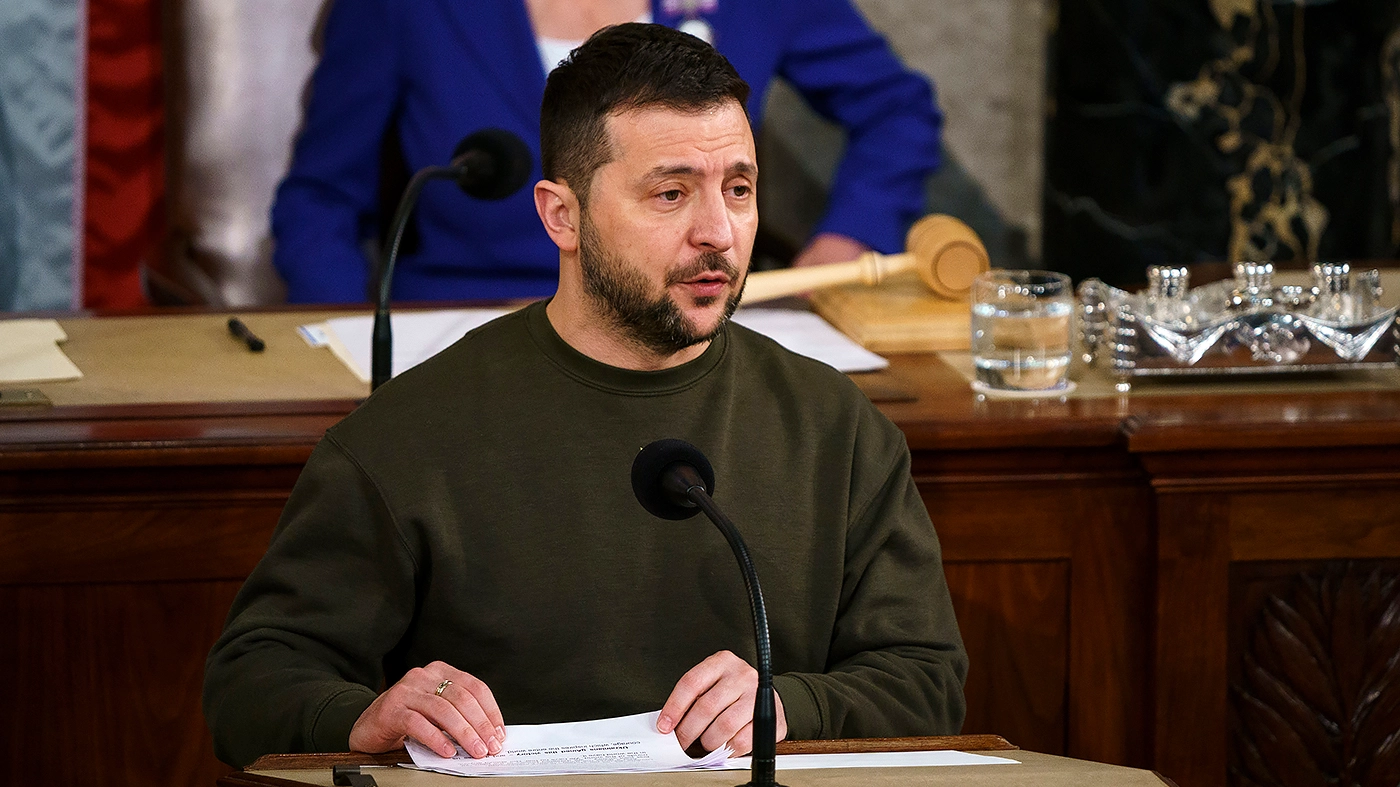Zelensky signs controversial law regulating press freedom, EU unhappy
The National Television and Radio Broadcasting Council will now preside over media organizations and journalists in Ukraine, thus acquiring more power and threatening free speech.
-

Ukrainian president Volodymyr Zelensky. Source: The Hill.
A controversial statute has just been signed into law on Thursday by Ukrainian President Volodymyr Zelensky, which extends the government’s power to take control over media groups and journalists in Ukraine.
As a result, the National Television and Radio Broadcasting Council (NTRBC), whose members are appointed by the president’s administration and by members of parliament, will now preside over media organizations and journalists in Ukraine, thus acquiring more power and threatening free speech.
Read next: Media freedom is in danger in Eastern Europe
The Kyiv Independent reported that the agency now can shut down unregistered news websites, which comes after the National Union of Journalists of Ukraine released in a statement last month that the bill posed a “threat” to freedom of the press.
“Such powers are clearly excessive,” the organization relayed, adding: “No one has yet managed to tame freedom of speech in Ukraine. It won’t work this time either.”
Not the first and not the last
This isn't the first time Zelensky's legislation has been chastised. He was accused of undermining press freedom when he first took office in 2019, after drafting legislation to expedite media regulation.
Previous draft versions provided the NTRBC more ability to impose fines, take away licenses and block online outlets from publishing restricted information. However, several international media organizations voiced opposition when the drafts were published, including the Committee to Protect Journalists and the European Federation of Journalists (EPJ).
The EPJ's General Secretary, Ricardo Gutierrez, stated to The New York Times that Zelensky's law goes against European press freedom standards. He added: “Ukraine will demonstrate its European commitment by promoting a free and independent media, not by establishing state control of information,”
Gutierrez called the previous draft of the law “worthy of the worst authoritarian regimes", according to the NYT.
Read next: Former US intelligence officer: West preparing to replace Zelensky

 2 Min Read
2 Min Read








